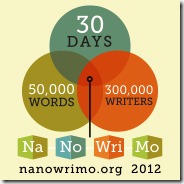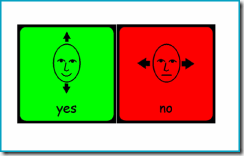by Diane Holmes, (a) Chief Alchemist of Pitch University, (b) lover of learning, and (c) writer of fiction, non-fiction, and the occasional manifesto.
Insanity of Epic Achievement
Writing a book in a month (NaNoWriMo, the World-Wide National Novel Writing Month of November) isn’t the only insanity of epic achievement in the house. I’m giving you 3 other massive goals that you can take on, mano a mano, if novel writing isn’t your thang.
So far, we talked about…
1. Create your own Writer’s Manifesto.
2. Put together your Leonardo de Vinci-style “mastery” resume.
And today, I’m going to bring the real pain.
3. Create a Big Hairy Audacious (Marketing) Goal.
First, a word about big, hairy audacious goals and what they mean. BHAGs is a term created by James Collins and Jerry Porras in their 1994 book entitled Built to Last: Successful Habits of Visionary Companies.
This is not just a big goal or an important goal.
This goal is about being the visionary of something that doesn’t exist. It’s about being ambitious on a big playa scale and finding those long-term goals (not just a month long, you NaNo people!) that, as Jim says in an INC interview, “galvanize successful companies.”
Galvanize.
Not motivate. Not lead to success. Not “make logical sense.” But galvanize, as in skewer the hearts and mind of people and echo in their heads as they march off into battle for a war that will last years.
That’s the kind of goal we’re talking about.
As John Corcoran says of his BHAG, “I didn’t know how it would go – and I don’t know how it will end.” He’s saying he might fail.
I point this out because most of us don’t set goals we won’t meet. We’re taught not to fail.
Time to take a risk.
But BHAGs are about taking on the “worthwhile but potentially impossible” even though you might fail. Why? Uh, because it’s worthwhile. Because as we search for meaning in our lives and careers, those choice of “good enough” versus great is up to us.
A Handy Example of BHAG:
In this short interview, Simon Sinek, author of Start with Why: How Great Leaders Inspire Everyone to Take Action, talks about why he has an 100 year goal.
Now, let’s talk about you.
One of the columns I write here at Freelance-Zone is called Marketing-Zone: Marketing Yourself and Your Writing. And here’s what I know:
1. You hate marketing.
2. You’ll do as little as possible.
3. You’ll fumble around doing what other writers or business owners do.
4. You’ll never blow anyone away with your skill, your strategy, or your innovation.
So change that.
Set a BHAG.
Become a marketing superstar who masters the skills and invents a campaign so successful, so original, it’s copied for decades to come by other writers.
Now that’s worthwhile.
Find your galvanizing, marketing goal. Be a visionary. Inspire. Infuse your writing and your marketing with passion. Reach your readers in a way that makes them gasp with delight. Become known on an international scale.
And decide right now to create something magnificent and full of meaning to replace everything you dread about marketing.
And then do it.
![clip_image001[4] clip_image001[4]](http://freelance-zone.com/blog/wp-content/uploads/2012/11/clip_image0014.jpg) Diane writes two columns for Freelance-Zone: (1) Fiction-Zone: Leaps in Fiction Mastery and (2) Marketing-Zone: Marketing Yourself and Your Writing.
Diane writes two columns for Freelance-Zone: (1) Fiction-Zone: Leaps in Fiction Mastery and (2) Marketing-Zone: Marketing Yourself and Your Writing.





 Your dream is about writing. I already know that. But what I want to know is if you’re living your big writing dream today?
Your dream is about writing. I already know that. But what I want to know is if you’re living your big writing dream today? 
